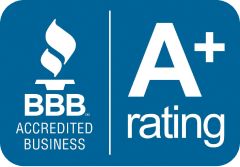Andrew Smith
Original Medicare, Part A and Part B
What is Original Medicare?
Original Medicare: Original Medicare refers to both Part A and Part B of the Medicare program. Original Medicare is administered by the federal government and provides coverage and access to Medicare-eligible individuals to doctors, hospitals, and other healthcare providers who accept the program. It is a fee-for-service plan, which means that the Medicare recipient pays a price for each treatment received. Medicare pays a portion of an approved sum up to a specific limit, and the beneficiary is responsible for the remainder.
The federal agency in charge of Medicare is the Centers for Medicare & Medicaid Services (CMS). CMS is a division of the Department of Health and Human Services in the United States. Medicare is funded in part by payroll taxes paid by both employees and employers. It is also partially funded by monthly premiums paid by beneficiaries, which could be taken from their Social Security benefits.
How Original Medicare works
| Original Medicare | |
|---|---|
| Source: Medicare & You handbook, published by the Centers for Medicare and Medicaid Services | |
| Are prescription drugs covered? | Only in specific circumstances, such as when you are a hospital inpatient. If you have Original Medicare, you can join a Medicare prescription drug plan to get full drug coverage (Medicare Part D). |
| Can I get my health care from any doctor or hospital? | Yes. You can see any doctor, supplier, hospital, or other facility that accepts new Medicare patients and is enrolled in Medicare. |
| Do I have to get a referral to see a specialist? | No. |
| Do I need a supplemental policy? | You can choose a Medicare Supplement Insurance (Medigap) plan to assist pay for copayments, coinsurance, and deductibles that Original Medicare doesn’t cover. Alternatively, you may already be covered by your employer or union for these expenses. |
| What else do I need to know about Original Medicare? | Before Medicare pays its portion, you must normally pay a fixed amount (a deductible) for your health care each year. Then, for covered services and supplies, Medicare pays its share and you pay your half (coinsurance). You can generally access the covered services listed in Part A Benefits if you have Medicare Part A. You can generally access the covered services listed in Part B Benefits if you have Medicare Part B. Medicare Part B normally has a monthly payment. Medicare claims are not required in most cases. Medicare requires providers (such as doctors, hospitals, skilled nursing facilities, and home health organizations) and suppliers to file claims for covered services and supplies. |
What is not covered by Original Medicare?
Parts A and B of original Medicare do not cover everything. Cosmetic surgery, health care received while traveling outside of the United States (unless under specified circumstances), hearing aids, most hearing exams, long-term care (such as care in a nursing home), most eyeglasses, most dental care and dentures, and more are all excluded. Prescription medicines are generally not covered by Original Medicare Parts A and B, while some pharmaceuticals are covered in limited circumstances, such as immunosuppressive treatments (for transplant patients) and oral anti-cancer drugs. A Medicare Advantage plan may cover some of the services that are not covered by Original Medicare.
How much does Original Medicare cost?
If they or their spouse paid Medicare taxes while working, they normally don’t have to pay a monthly fee for Medicare Part A coverage. The majority of consumers pay a basic monthly premium for Medicare Part B. Because of their income, some persons may have to pay a higher Medicare Part B premium. On our Medicare Part B website, you may find more information regarding Part B premiums.
Original Medicare assignment
Assignment is the method by which Original Medicare pays for health-care services. When your doctor, health-care provider, or medical product supplier accepts the Medicare-approved amount as complete payment for services, this is known as assignment. Using a doctor, provider, or supplier who accepts assignments to deliver services and supplies can help you save money.
To get the most out of your Original Medicare assignment, you must be aware of the following:
- Although most doctors, providers, and suppliers accept assignments, you should always double-check. They must accept an assignment in particular circumstances, such as when they have a participation agreement with Medicare and provide you with Medicare-covered treatments.
When a doctor, provider, or supplier accepts an assignment, they agree to charge you only the Medicare deductible or coinsurance amount and wait for Medicare to pay the rest. - Your claim must be submitted directly to Medicare by all doctors, providers, and suppliers who provide you with Medicare-covered services. They are unable to charge you for filing the claim.
Visit Medicare.gov and click on “Find a Doctor” or “Find Suppliers of Medical Equipment in Your Area” to find doctors and suppliers who accept assignments. You can also call 1-800-MEDICARE (1-800-633-4227) (TTY users: 1-877-486-2048), which is available 24 hours a day, seven days a week.
Be advised that if your doctor, provider, or supplier refuses to accept the Original Medicare assignment, you may be subject to the following penalties:
- When they provide you with Medicare-covered services, they must still file a claim to Medicare. If they fail to submit a claim for these treatments, you should register a complaint with the firm that handles Medicare claims in your state. For their phone number, call 1-800-MEDICARE (1-800-663-4227) (TTY users 1-877-486-2048). Meanwhile, you may have to pay the full cost of the service at the time of service and then submit a claim to Medicare for reimbursement.
- They are allowed to charge you more than the Medicare-approved amount, but there is a cap known as “the limiting charge.” They are only allowed to charge you 15% more than the Medicare-approved amount. (In your state, the sum may be lesser.) Only specific services are subject to the limitation charge, which excludes some supplies and durable medical equipment.
Read More: Medicare Part A Eligibility (Best How to enroll Guide)
More to explorer

What Is Medicare?
Medicare is a federal health insurance programme for those who meet the program’s requirements, such as those who are 65 or older,

How are Medicare benefits changing in 2023?
Medicare Part A will increase by a small amount in 2023, while Medicare Part B and Medicare Advantage will decrease in price.

The Truth About Medicare Part B’s Dental Coverage
When using Medicare Part B, can I get my teeth fixed? Actually, both yes and no. Even though Medicare Part B is




